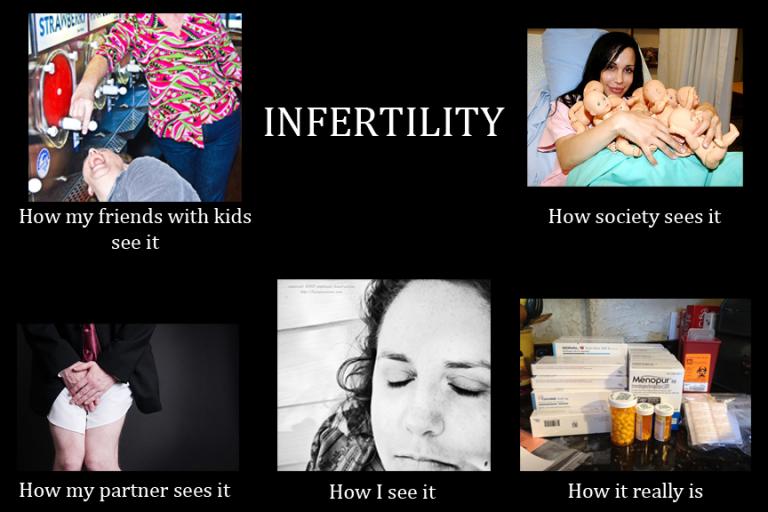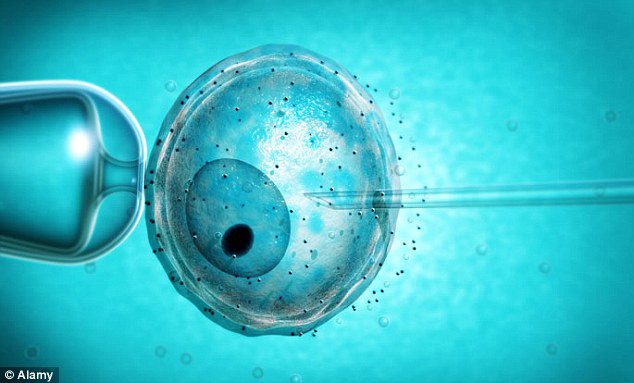We have a godawful habit of seeing  children as things so small, cute and fluffy that we hollow them of that dignity hard as titanium steel — the dignity of being a human person.
children as things so small, cute and fluffy that we hollow them of that dignity hard as titanium steel — the dignity of being a human person.
The child is not owned by his mother, father, community, or state. He is a unique human subject, a universe unto himself, an unfathomable subjectivity — a being who finds himself free, existing for his own sake.
In the glare of this freedom, it occurs to me that I cannot own a child any more than I can own an adult. I can only care for him, and care is an action of love.
The child is cared for by the duty, responsibility and desire of love, because love is the only category in which one human being can say to another “you are mine” without meaning “I own you.” Love is the only category under which the child can blossom, because under its star he is taken care of, with a care that does not infringe upon the fact that he is a human person who ultimately belongs to himself. The afore-mentioned entities — mother, father, community, and state — each of these should care for the child to the extent proper to their duty, but this care never implies ownership.
This is what the Church says in Donum Vitae, the document I will be quoting throughout the length of this post:
The child is not an object to which one has a right, nor can he be considered as an object of ownership: rather, a child is a gift, “the supreme gift” and the most gratuitous gift of marriage, and is a living testimony of the mutual giving of his parents. (Donum Vitae)
The child is a gift of love, and I believe that this fact is available not only to the eyes of faith, but also to the eyes of basic human experience.
Outside of love, there is only economy. Here objects are bought and sold in an ever-turning tumult of supply and demand. Here lies the land of the owed and the owning. In the category of economy, there is disappointment — which niggles us when we don’t get what was owed — just as there is fulfillment — which comforts us when we do. Getting, purchasing, buying, selling, attaining, owing and owning — this is the song Wal-Mart sings.
Now in the category of love there is only gift. In the act of “making love” a husband gives himself to his wife, a wife gives herself to her husband, and the child conceived is a gift to them both. “In reality, the origin of a human person is the result of an act of giving.” (Donum Vitae) Neither parent can claim ownership of the child, for they share in the life of the child as they shared in his creation. Where there is love there is no disappointment, for the child was not supposed to be this way or that. Nothing is owed in the act of love. In fact, such an “owing” would be a contradiction in terms, for love transcends the lexicon of economy and asserts the language of un-owed, undeserved gift.

If the child has a disability — let’s say Down Syndrome — there might be disappointment in the situation, for such conception comes with immense trial. But there is no disappointment in the child himself, for the child is pure gift, and the man disappointed in a gift is a man who believes he was owed a gift, that he had “a good thing coming to him.” In short, he treats it entirely unlike a gift. He treats the child within the category of economy.
It seems apparent that our current sexual culture is one of economy, not of love. If this is not plain enough by the fact that the first sexual experience of the majority of American men is an experience of bought sex — I refer, of course, to the business of pornography — then consider this: 90% of children diagnosed with Down Syndrome are killed in the womb. I don’t mean to argue that such killings are not performed out of some feeling of compassion — out of the misguided idea that death is better than a life of Down Syndrome — nor do I mean to undermine the difficulty that comes with being a parent to a disabled child. But one thing remains clear: Gone are the no-matter-whats and the eternal giving of self that characterize the heart of love. In its place is disappointment, cost-benefit analysis, failure to get what was wanted — in short, the whole dictionary of economy. We treat the child under the category of economy, for instead of managing the situation, we kill the child.
The Church opposes the confusion of love and economy. In some cases, our culture nods her head in approval. After all, this is the reason it’s a sin — and a heinous one — to promote loveless sex, sex which views a man as a sperm-bank and woman as a functioning uterus. This is one of the many reasons the Church condemns rape. This is one of the many reason that the Church is so heroic in opposing gendercide — the intentional abortion of baby girls. These evils are all evils of economy, that Wal-Mart category that counts the costs, that meets demand, that owes and is owed, and that has as much to do with love as porn has to do with a culture free from sex-trafficking — that is, nothing at all.
But when the Church opposes IVF for the exact same reasons, the culture rage quits. I understand the anger, I really do, for there is nothing so emotionally painful as infertility, nor anything so understandable as the use of artificial reproductive technology to alleviate that pain. But let’s take a step back and look at the thing.
In the practice of IVF, and the act of procreation amounts to a process of 12,000 dollars, egg-harvesting, masturbation, and the subsequent laboratory work of trained specialists (with some obvious differences depending on the procedure). The creation of children is performed by the cost-counting fingers of economy, not by an act of mutual self-gift.
The evils and difficulties that result from IVF are not the reason IVF is wrong, they are the natural result of separating life from the act of love, indicators of something rotten at the core of this scientific procedure that holds high the banner of compassion. The manipulation and abuse of women who donate ovums, the “disposal” of unique human lives, the inability of the reproductive technology industry to keep the multiple-conception rate at normal levels and the subsequent abortions that compensate for this inability — these are problems of economy. The commodities trafficked are life and death. When the Church says that “through these procedures, with apparently contrary purposes, life and death are subjected to the decision of man, who thus sets himself up as the giver of life and death by decree” we understand the gravity of removing the creation of a child from the act of love . Economy can be a cold, killing wind.
Now it’s important to realize what the Church is not saying, and thereby avoid making bad arguments. The Church is not saying that parents who conceive from IVF do not love their children. Indeed, she points out a balm found in the use of IVF between married couples, that despite the wrongness of the act, “the family and marriage continue to constitute the setting for the birth and upbringing of the children.” The Church is simply saying the method of creation is sin against love and that subsequent repentance and love must overcome this origin. Love is powerful stuff, so I have no doubt couples can do and do just this.
Similarly, the Church is not saying that couples suffering with infertility should not seek to overcome their infertility. The Church admits “the desire to have a child and the love between spouses who long to obviate a sterility which cannot be overcome in any other way constitute understandable motivations” but adds — in that manner so foreign to our modern sensibilities — “subjectively good intentions do not render…artificial fertilization conformable to the objective and inalienable properties of marriage or respectful of the rights of the child and of the spouses.” The Church is not giving up on infertile couples. As it turns out, there’s a far better way then IVF.
good intentions do not render…artificial fertilization conformable to the objective and inalienable properties of marriage or respectful of the rights of the child and of the spouses.” The Church is not giving up on infertile couples. As it turns out, there’s a far better way then IVF.
When medicine takes as its guiding premise the protection of all human persons involved, it’s not just ethical medicine, it’s excellent medicine. The success of natural methods of treating infertility has been shown to rival IVF, and they do so without the abortions, elevated risk of birth defects, price, and all the rest. Two recent studies have shown that the live birth rate of women treated with Natural Reproductive Technology is entirely comparable to the live birth rate of women treated with IVF, though larger cohort studies are required. (1) (2) For women diagnosed with “subfertility” or “unexplained fertility” there’s actually no conclusive evidence that IVF is more helpful than any other treatment. (3) In fact, a 2012 study published in Infertility suggests that couples diagnosed with subfertility have as good chances of conceiving in three years of just having sex than in having an IVF procedure. (4) The Church, by sticking to the principle of love, has created a demand for medicine without the taint of economy, death and manipulation, and thanks the heroic, rebellious doctors and scientists who meet that demand, the entire culture has been elevated: The natural, healthy, ethical treatment of infertility is now a reality.
But let’s get back to the point: The Church’s postion, much to our frustration, does not waver: The child “cannot be desired or conceived as the product of an intervention of medical or biological techniques; that would be equivalent to reducing him to an object of scientific technology. No one may subject the coming of a child into the world to conditions of technical efficiency which are to be evaluated according to standards of control and dominion.” (Donum Vitae) Whatever the particular artificial reproductive technology, if it separates the creation of children from the act of love then it is an injustice against the child:
“The child has the right to be conceived, carried in the womb, brought into the world and brought up within marriage: it is through the secure and recognized relationship to his own parents that the child can discover his own identity and achieve his own proper human development. The parents find in their child a confirmation and completion of their reciprocal self-giving: the child is the living image of their love, the permanent sign of their conjugal union, the living and indissoluble concrete expression of their paternity and maternity.”
To subsume the child into the world of economy is an offense, because in “getting” a child, we deprive him of his basic rights: “Heterologous artificial fertilization violates the rights of the child; it deprives him of his filial relationship with his parental origins and can hinder the maturing of his personal identity.”
If the child is a human person — with rights that demand our respect — then the intentional deprivation of the child’s relationship with his biological parents can’t be right. A 2010 study of children born from artificial reproductive technologies entitled “My Daddy’s Name is Donor” found the following:
On average, young adults conceived through sperm donation are hurting more, are more confused, and feel more isolated from their families. They fare worse than their peers raised by biological parents on important outcomes such as depression, delinquency and substance abuse. Nearly two-thirds agree, “My sperm donor is half of who I am.” Nearly half are disturbed that money was involved in their conception. More than half say that when they see someone who resembles them they wonder if they are related. Almost as many say they have feared being attracted to or having sexual relations with someone to whom they are unknowingly related. Approximately two-thirds affirm the right of donor offspring to know the truth about their origins. And about half of donor offspring have concerns about or serious objections to donor conception itself, even when parents tell their children the truth.
(This principle applies to surrogate motherhood, which “offends the dignity and the right of the child to be conceived, carried in the womb, brought into the world and brought up by his own parents; it sets up, to the detriment of families, a division between the physical, psychological and moral elements which constitute those families.” (Donum Vitae))
I encourage to everyone to read some of the stories children of donors give, as they reveal the heartbreaking reality behind our innocent bantering about “new family structures”. But ultimately it is not the deprivation of parental relationship that makes such artificial reproductive technologies a crime against love. It is the separation of the creation of children from the act of love and mutual self-gift we call procreation. That such a separation often deprives children of their biological father or mother is simply a logical consequence of our valuation of economy over love, for by it the child is not considered in himself and for himself, as an unfathomable gift of love who we can only care for with immense tenderness. Instead, under the auspices of economy, the child is for us, and the effects of our “getting” a child on the child himself are not considered.
 In my post regarding the unique Catholic difficulty in addressing gay marriage, many complained that it was entirely inconsistent to oppose a redefinition of civil marriage into a genderless institution on the basis that children have a right to their mother and father. After all, we deny children their fathers and mothers all the time. Look at IVF, surrogacy, sperm donation, the works! But it occurs to me now, as it occurred to me then, that the Catholic position in regards to the child and the family is fundamentally not the culture’s. The fact that the child is a gift permeates Church teaching from the ground up, to the point where the Catholic, when confronted with the argument, “We already split fatherhood and motherhood from marriage and family, why not do it some more?” can only wave his arms and say, “But we oppose that too!” This “debate” wears on me for this very reason: We’re on entirely different planes.
In my post regarding the unique Catholic difficulty in addressing gay marriage, many complained that it was entirely inconsistent to oppose a redefinition of civil marriage into a genderless institution on the basis that children have a right to their mother and father. After all, we deny children their fathers and mothers all the time. Look at IVF, surrogacy, sperm donation, the works! But it occurs to me now, as it occurred to me then, that the Catholic position in regards to the child and the family is fundamentally not the culture’s. The fact that the child is a gift permeates Church teaching from the ground up, to the point where the Catholic, when confronted with the argument, “We already split fatherhood and motherhood from marriage and family, why not do it some more?” can only wave his arms and say, “But we oppose that too!” This “debate” wears on me for this very reason: We’re on entirely different planes.
At most, I hope this post clarifies for non-Catholics the root of our teaching, and helps the Catholic understand that his support of the persistence the human family must be essentially positive, not motivated out of any desire to deny anyone’s rights, but to uphold dignity and rights of the child. At least, for those who detest the Church for opposing a redefinition of civil marriage, this will provide ammo. For as it turns out — between the Catholic teaching on IVF, surrogacy, and all the rest — the Catholic should be detested for so, so much more. For those readers wounded by our culture’s relentless shoving of economy into those sacred lands reserved for love, I am sorry. You are in my prayers. Remember the words of St. John of the Cross: “Where there is no love, put love — and you will find love.”
(1) Stanford et al, Outcomes From Treatment of Infertility With Natural Procreative Technology in an Irish General Practice, Journal of the American Board of Family Medicine, September-October 2008, Vol. 21, Pages 375-384
(2) Tham et al, Natural procreative technology for infertility and recurrent miscarriage: Outcomes in a Canadian family practice, Canadian Family Physician, May 2012, Volume 58, Pages 276-274
(3) Pandian Z, Gibreel A, Bhattacharya S. In vitro fertilisation for unexplained subfertility. Cochrane Database of Systematic Reviews 2012, Issue 4. Art. No.: CD003357. DOI: 10.1002/14651858.CD003357.pub3
(4) Stanford et al, Cumulative pregnancy probabilities among couples with subfertility: effects of varying treatments, Infertility, Volume 93, Issue 7, May 2010, Pages 2175–2181












